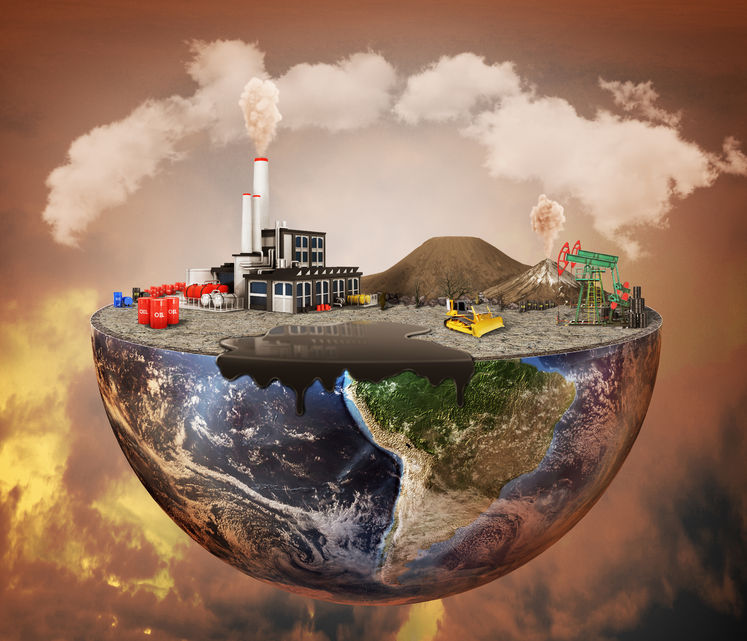Global Warming Worsens “Natural” Disasters
56069160 – pollution concept. plant, machinery, petroleum, emissions, dirty air, landfill. plant with vulcans and oil spot on the half of planet.
October 11, 2019
After Hurricane Dorian made landfall in the Bahamas on Sept. 1, many scientists warned that global warming is the reason we have seen so many damaging storms in recent years and that as temperatures continue to rise, these storms will cause more and more destruction throughout the world.
The destruction of Dorian itself serves as a dire warning. Dorian slammed the Bahamas as a Category 5 storm with the highest recorded wind speed of 183 mph.
Bahamas resident Vanessa Pritchard-Ansell told NBC News, “Even after loved ones are found safe, the storm will leave lasting impacts on everyone affected.”
Scientists who study these hurricanes have noticed a pattern over the last few decades, such as the drastic increase in rainfall, with several feet of rain falling on the Bahamas.
Scientists predict that by 2050, temperatures in the global south will have risen by 4.9 degrees, according to the news source Vox.com. This would make the average summer high 103.5 degrees. With rising temperatures comes the Arctic melting, with the threat of rising sea levels. Sea levels could rise as much as 19 inches by 2050.
As everyone knows, New Mexico is a dry state that has issues with wildfires in the summer months. With rising temperatures, water will evaporate faster, making water scarcity — and therefore wildfires — more common. According to the website of the Environmental Protection Agency, certain cities in New Mexico have banned sprinkler use from 11 a.m. to 7:00 p.m.
In addition, because temperature plays a big role in controlling the life cycle of many organisms, rising temperatures bring an increase in bugs. Bark beetles have infested nearly 200,000 acres of forest in New Mexico alone, ruining many pines and piñons. Diseases might also become an issue as bark beetles carry diseases.
Changing this comes down to reducing carbon emissions, but global emissions are reaching record levels with no sign of peaking. Experts still claim that decarbonizing the economy by 2050 is not completely out of reach. But if no moves are made to save our planet, by 2030, global emissions will start slipping out of control, and we will be at a point of no return.
At a United Nations General Assembly meeting in March 2019, General Assembly President María Fernanda Espinosa Garcés stated, “We are the last generation that can prevent irreparable damage to our planet.”


